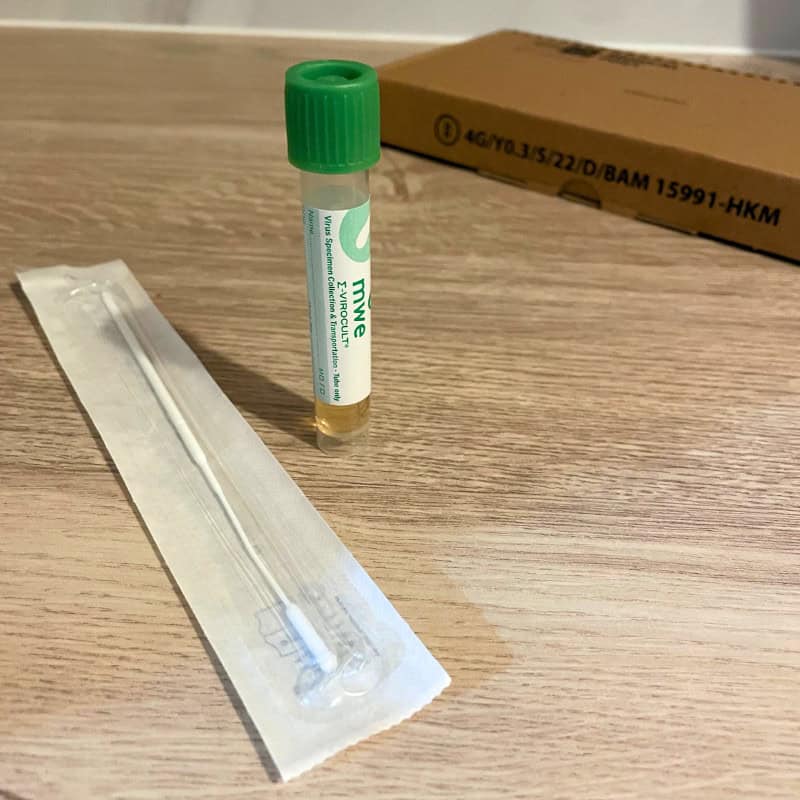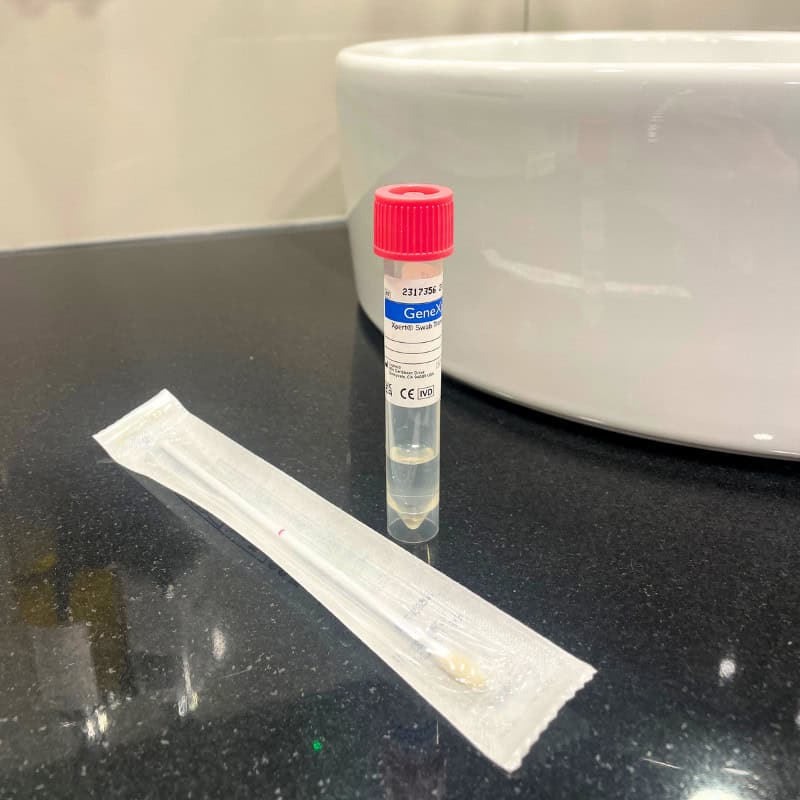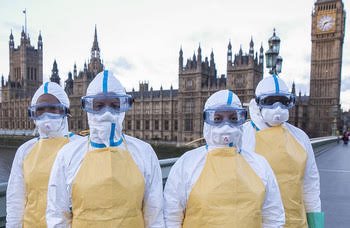Month: September 2018
Most people who ski go from a sedentary job to a full week of intensive activity, and not just skiing itself, but lifting skis/boots and twisting getting on and off lifts, not to mention the après-ski…
Here are the TOP TIPS from our consultant osteopath, Andrew Doody, on how best to prepare and get the most out of your holiday, injury free!
BEFORE YOU GO:
- • Build up your fitness gradually. Just a few sessions on the cross-trainer will wake up those muscles to avoid problems in the first few days on the slopes. Even walking to work or using the stairs will get things going.
- • Start a stretching program. Concentrate on quads, hamstrings and calves.
- • Don’t ignore any twinges you may have, get them checked out and sorted before you go!
- • Work on your balance. Dig out that old yoga DVD.
- • Have your alignment checked. Most skiers find turning one way easier than the other. Poor technique may not be the problem! One-sidedness or muscle weakness is often the cause. Desk based workers are particularly susceptible.
- • Get professional advice on the best products to support problem knees, ankles, wrists or backs.
ON THE SLOPES:
- • Ensure ski boots are properly fitted: ill-fitting boots can impact on your posture when skiing.
- • Warm up before you start and stop and stretch off regularly, paying particular attention when you finish for the day.
- • Drink plenty of water.
- • Always wear a helmet!
- • Don’t ignore any pain you may experience, see it as the warning that it is meant to be and have it checked.
- • Beware in the village. Lots of ski injuries come from carrying kit badly or slipping on ice away from the slopes.
ON YOUR RETURN:
- • Don’t leave it another year to follow up on the cause of any pain you’ve experienced.
- • Consider ways to help you improve your fitness level throughout the year so that you are fit and ready to return to the slopes next ski season!
If you would like advice on the best exercises you can do to prepare for your ski trip, of have returned from holiday with an injury, you should book an osteopath appointment.
Some viruses thrive in the winter and are easily spread during cold weather. The lack of sunlight also means there is less Vitamin D in your body during winter, which can lower your immune system. This makes it harder for the body to fight off infections, resulting in a higher chance of sickness, even amongst the healthy.
If you’re planning on avoiding the flu this year, going on holiday, starting University, having a child or just living a healthy lifestyle in general, then there are a number of extremely important vaccines you should know about.
1. Flu Vaccine:
Now is the perfect time to have your flu jab, to ensure protection for the entire winter. Our adult flu vaccines are already in stock including Quadrivalent, FluAd and egg-free. Due to distribution delays, needle-free Quadrivalent vaccines for kids will be arriving soon.
– Find out more about the Flu Vaccine
2. MMR – Measles, Mumps and Rubella:
Many people who are now adults have never been vaccinated against measles, mumps or rubella, either from concerns over misinformation during the 1990s or because they simply missed out on getting protected. As a result, there has been an alarming rise in cases and outbreaks, with several deaths. Unfortunately, this year the UK also lost its ‘Measles Free’ status. Two doses are needed for protection, and it is never too late to be vaccinated!
– Find out more about the MMR Vaccine
3. Chickenpox:
There’s no need for any child to go through the misery of the chickenpox. It is entirely preventable with a vaccine that is still not yet available on the NHS, Varicella. This vaccine can be given to children over the age of one year. 2 doses are recommended for full protection.
– Find out more about the Chickenpox Vaccine
4. Shingles:
Shingles is a horrible reactivation of the chickenpox virus in adults who have had chickenpox during childhood. It consists of a painful, blistering rash. The pain can linger for months or years but it is also preventable. Shingrix is a relatively new vaccine which provides the best protection against Shingles. It offers up to 90% immunity. Supplies worldwide are limited but The Fleet Street Clinic is one of the first medical practices in the UK to make it consistently available.
– Find out more about the Shingles Vaccine, Shingrix
5. HPV (Human Papilloma Virus) Vaccine:
HPV is the leading cause of cervical cancer but also causes other genital, head & neck cancers. The national programme offers all 12- and 13-year-olds in school the Gardasil HPV vaccine. HPV-4 protects against 4 types of HPV. There is no “catch-up” programme for older children and adolescents.
At Fleet Street Clinic, we offer Gardasil 9. It offers greater protection against 5 additional types of HPV. In our opinion, if you have not received the HPV vaccine yet, you are better to get the HPV- Gardasil 9 vaccine to benefit from the extra protection it offers.
– Find out more about the HPV Vaccine, Gardasil 9
6. Whooping Cough:
Childhood vaccination does not give lifelong protection, and newborns are especially vulnerable. Vaccination is recommended during pregnancy, and may also be advisable if you have a close family member who is pregnant, or if you’re likely to be in close contact with their newborn baby.
– Find out more about Whooping Cough
7. Meningitis:
We offer Meningitis ACWY and Meningitis B vaccines. This vaccine is recommended to all those who fall outside the age groups currently targeted by the NHS or have an important deadline for protection.
– Find out more about Meningitis ACWY and Meningitis B vaccines
8. Hepatitis B:
Hepatitis B is spread by blood and body fluids. In most other developed countries, it has been a standard part of the childhood vaccination schedule for many years, but in the UK it has only just been added to the schedule at birth and infancy. There is no “catch-up” programme for older children and adolescents. We strongly believe this vaccine should be offered more widely – all young, sexually active adults ought to be protected.
– Find out more about Hepatitis B
9. Pneumonia:
We strongly recommend the Prevenar pneumonia vaccine for those aged 65 and over. Pneumonia can affect people of any age, but it’s more common and can be more serious, in certain groups of people, such as the very young or the elderly. Anyone with a past history of pneumonia, asthma or lung disease should also consider this vaccine. Anyone can get a pneumococcal infection, but not everyone is offered the pneumococcal vaccine on the NHS. Prevenar pneumonia vaccine protects against 13 of the most common strains of Streptococcus pneumoniae bacteria.
– Find out more about the Pneumonia Vaccine
10. Rabies:
At the Fleet Street Clinic, we are well known for offering the full range of travel vaccines, always in stock. But if I had to pick just one vaccine I would never want to be without, it would be rabies. Protection is cheap, easy, safe and long-lasting – but expensive and hard to find if you are ever unlucky enough to be bitten abroad. I was once attacked by a dog in a remote part of Peru, and have had to look after dozens of travellers who have been in similar situations.
– Find out more about the Rabies Vaccine
Get in touch…
If you would like more information or require any of these vaccinations, please give us a call to arrange an appointment or book your appointment online today
With Ebola remaining a cause for concern in the Democratic Republic of Congo (DRC), Johanna, one of our travel nurses who’s had first-hand experience during the 2014 outbreak, looks at the differences between the current outbreak compared to her experience.
During the 2014 outbreak, I was stationed in an Ebola treatment centre in Sierra Leone. The UK government responded to the Ebola outbreak by sending out British medical professionals to help support the Ebola response unit. It was a time in my life when I didn’t have responsibilities that tied me to a fixed geographic location, alongside having the necessary skills that could make a difference, so there really didn’t seem a reason not to go to help out.
The current outbreak is happening in the Democratic Republic of the Congo (DRC).
The General-Director of the World Health Organisation recently visited Ebola-affected areas in the DRC and reported:
‘Since the outbreak began in August 2018, there have been 608 cases and 368 deaths in North Kivu and Ituri provinces. To date, more than 54,000 high-risk contacts and frontline responders have been vaccinated, and almost every new patient receives one of four investigational treatments, something which was never previously possible during an Ebola outbreak.
The main challenges are the security environment, pockets of mistrust among affected populations, and poor infection prevention and control in many public and private health facilities. Under the government’s leadership and working collaboratively with UN and NGO partners, WHO is committed to addressing these challenges and ending the outbreak.
There are many factors that make this current outbreak vastly different to the 2014 outbreak:
- Regional Stability
The political situation in the DRC is unstable which has led to less infrastructure to support relief efforts and virus control activities. Healthcare providers may be at risk of violence which makes a difficult job even harder. Civil unrest has lead to more than 1 million people being forced to leave their homes to escape potential violence, this mass movement of people means the spread of the virus is harder to control. This creates a very different context to the one we were facing in Sierra Leone.
Source: The New England Journal of Medicine: New tools in the Ebola arsenal, United Nations High Commissioner for Refugees: Spiralling violence puts millions at risk in Ebola-hit eastern DRC. August 24, 2018
- Public Awareness
At the beginning of the 2015 outbreak, there was very limited public awareness of the Ebola virus and how it is spread. The understanding of Ebola transmission was minimal and communities were unaware that some traditional practices could be increasing the risk of infection. The outbreak in 2015 involved a very steep learning curve for all involved. The many lessons learnt then will mean that there is more knowledge, resources and information to fight the virus this time around.
According to The Lancet:
In 2016, Guinea, Liberia, and Sierra Leone succeeded in interrupting the longest epidemic of Ebola virus disease in global history…Control of the epidemic was primarily achieved by implementation of effective and coordinated public health measures that involved rapid identification, isolation of cases, contact tracing, and isolation of contacts.
Source: The Lancet: Prevention of Ebola virus disease through vaccination: where we are in 2018
- Ebola Vaccine
One of the major developments in the armoury of tools to fight Ebola is the development of an Ebola vaccine. This was only a dream in the 2015 outbreak but it is a reality for the healthcare professionals currently working in the DRC. Although still in its early stages, the Ebola vaccine in use in the DRC is showing very promising results. In May and June of 2018 more than 3,000 people were vaccinated as part of the WHO response to the Ebola virus.
Source: The Lancet: Prevention of Ebola virus disease through vaccination: where we are in 2018
- Safer working conditions
Treating patients in the 2015 outbreak was very difficult for many reasons. One of the hardest things was finding a balance between safety from infection and being able to provide effective and compassionate care. Working in the hazmat suits kept us safe from transmission of the disease, but working in 40-degree heat wrapped up in layers of plastic was very inconvenient for many reasons. Being so hot meant that we could not spend as much time with our patients as we would have liked because there were limits to how much time we could spend in the Red Zone for our own safety. Being so covered up also made it harder to form human relationships with our patients (which is the cornerstone of nursing practice) because it was difficult for our patients to distinguish between us and any chance of communication through facial expressions was impossible.
The current outbreak has seen the introduction of air-conditioned Ebola treatment cubicles which eliminates the need for such restrictive time constraints whilst also offering a healthier environment for medical professionals.
According to the New England Journal of Medicine:
With such cubicles, health care workers can provide intravenous fluids and therapeutics through specialized ports and are thus freed from the burdensome personal protective equipment used during the 2014 West African outbreak to spend more time with their patients. Medcins sans Frontieres (MSF, or Doctors without Borders) continues to be a leader in developing safe care for patients with EVD provided in structures that can be rapidly erected using local resources.
Sources: The New England Journal of Medicine: New tools in the Ebola arsenal
- Containment of the outbreak
This outbreak is considered a contained case with little spread outside of the outbreak origin. The 2015 outbreak quickly moved across international borders and therefore was a cause of much concern for the international community. People are obviously anxious about the spread of Ebola, however, at this stage, the risk is minimal within Europe. There are many precautions taken by all those returning to the UK from affected areas.
When returning from Sierre Leone, I was subject to 3-week quarantine monitored by Public Health England during which I had to report my temperature to them twice a day and there were numerous restrictions on what I could and couldn’t do such as, I couldn’t work in hospitals, I could get my hair cut but not shaved, I couldn’t get a pedicure nor go to places with large amounts of people including football matches and music concerts. Everything was extremely well monitored and the public was kept incredibly safe from infection. These practices are no-doubt to be in place for this current outbreak as well.
______________________________
If you have any concerns about travelling to parts of Africa, you can book a travel consultation for the latest travel health advice for your destination.
By Johanna Bosowski | Travel Nurse | February 2019
A weekend in Dublin
The unique mixture of hedonism and heritage makes Dublin the perfect city break.
Be ready to eat and drink your way around the city, indulge and celebrate, both these things are encouraged wherever you go. The Irish definitely know how to live life to the full.
Here is our flu coordinator Laura’s guide to ensure you have a memorable weekend in Dublin.
Plan Ahead
Dublin requires a certain amount of pre-planning especially if you’re wanting a budget city break. Prices tend to steadily increase the closer you book to the date of travel. So, expect to pay more if you’re more of the spontaneous adventurer.
Depending on if you’re taking the whole family or travelling alone, we’d always book flights in advance. Especially expect to pay more on St Patrick’s weekend!
Book your accommodation early! There is a big rental shortage in Dublin and popular times throughout the year can result in overpriced accommodation at hostels, hotels and even Airbnb’s.
Clothing
The Irish weather has a reputation for having four seasons in one day and for that reason pack clothes for all types of weathers. Layering is key, that way you can add and remove layers depending on the weather. An absolute essential is a lightweight raincoat for those unexpected downpours.
Footwear
If you are an adventurous traveller, you will find your normal running trainers might not be enough for the unexpected weather and puddles! We’d recommend investing in some hiking boots, these will come in handy for those out of city days and will make sure your feet stay nice and dry.
Guinness
No trip to Dublin is complete without a trip to the Guinness Brewery. This is a must do!
Believe it when people say the Guinness tastes different in Ireland, it definitely does. Just a tip – Save yourself from the huge queues and book your ticket online. Be ready to drink – your tour comes with a free taster at the end!
Natural Beauty
The city can be all-encompassing but make time to visit the landscapes and explore the natural beauty of the beautiful Irish cliffs. One of the natural wonders to visit would be the Giant’s Causeway. Breathtaking scenery!
You might find it easier to do this by renting a car, remember to bring a credit card and your passport. It can be very cheap, and lets you see all the best stops in your own time.
Locals know best
It is always handy if you know a local, they have all the insider knowledge and are able to steer you away from all the overpriced tourist traps and find something truly authentic. If like me, you don’t know a local, my advice is to ask around, you’re sure to find a friendly local who’ll share the history of Ireland with you in exchange for a pint of Guinness (or two!)
A bit of history
There are no shortages of bars and pubs in Dublin. A couple to definitely make sure you visit would be The Brazen Head and The Temple Bar.
The Brazen Head is Ireland’s oldest pub, the present building was built in 1754 as a coaching inn. However, it appears in documents as far back as 1653.
The temple bar is very loud and very busy, so not to everyone’s liking but if that is your scene then you won’t be disappointed. Many famous Irish legends have taken to their stage and entertain large crowds with their iconic songs and ballads throughout the years. Definitely sink an Irish whisky here!
Book your travel appointment today
By Laura Berry | Flu Project Coordinator | September 2018
Our travel clinic nurse, Anna Chapman, has just returned from an amazing two weeks travelling around South Africa.
Many items were ticked off her bucket list including a stay in Cape Town, a visit to the Winelands of Franschhoek and Stellenbosch and a stopover in Hermanus and Touwsrivier in the Western Cape. It was a busy trip!
Anna shares her top travel health tips for staying healthy on the road.
TRAVEL VACCINATIONS ARE A MUST!
Make sure you get your travel vaccinations in plenty of time prior to travelling. Book a travel consultation appointment 4-6 weeks before your flight to discuss health safety and vaccination recommendations. Travellers with a pre-existing health problem should book an appointment with a GP even earlier. Often vaccines are left to the last minute and not prioritised but it is important to protect yourself against life-threatening diseases.
South Africa is a huge country and the vaccinations you need will depend on exactly where you plan to stay, visit and what you plan to do. Depending on where you enter the country, high-risk areas may require you to provide proof of yellow fever vaccination on entering.
The far eastern provinces and game parks of South Africa pose a risk of malaria. If you are planning a safari, find out which reserve you will be visiting to determine if you will require anti-malarial medication. There are numerous game parks in the east and centre of the country which are malaria free. We also recommend our Ultimate Bug Kit to help protect you from mosquitos.
Other vaccinations to consider; hepatitis A, polio and typhoid.
BE MINDFUL OF THE WATER DROUGHT
There has been a severe drought in South Africa, particularly in the Western Cape. At present, there are active water restrictions in place throughout. You should be mindful of water consumption and comply with local restrictions.
As a result, many toilets no longer have running water to wash your hands with and instead offer hand sanitiser. Make sure you take your own hand sanitiser with you just in case the public facilities run out. Good hand hygiene is key to preventing upset stomachs otherwise known as travellers’ diarrhoea. Travellers should consider booking the drinkable vaccination, Dukoral, which protects against cholera and travellers’ diarrhoea. It would probably be worthwhile in taking a diarrhoea treatment pack with you on your travel as well.
TRAVEL SICKNESS
The Western Cape and the Cape of Good Hope is known for stormy seas. If you are prone to travel sickness and plan on taking any boat trips, make sure you pack seasickness medication. Whale watching is a popular tourist activity, and even the short boat ride from Cape Town to Robben Island can be rough enough to make those susceptible to seasickness feel queasy.
OVERNIGHT FLIGHT RISKS
Most travellers enter South Africa in a direct overnight flight from the UK. With only an hour time difference from the UK, people use this flight to catch up on sleep before they land. Sitting immobile for prolonged periods can put you at risk of a deep vein thrombosis. Minimise the risk by staying hydrated, keeping mobile and wearing compression stockings throughout the flight
IMPORTANT AFTER TRAVEL APPOINTMENTS
Travellers returning with diarrhoea should seek medical care if symptoms do not improve within three days. At Fleet Street Clinic, we have an on-site PCR machine which is able to identify the cause of travellers’ diarrhoea to produce a rapid report. Our GP’s can identify the exact cause, provide an accurate diagnosis and prescribe the correct treatment.
Medical advice should be sought earlier for those who are elderly, children and other vulnerable travellers if they are showing signs of dehydration.
______________________________
Our experience team of travel nurses can help advise with any queries or more information on South Africa.
Book your travel appointment today
By Anna Chapman | Travel Nurse | September 2018








